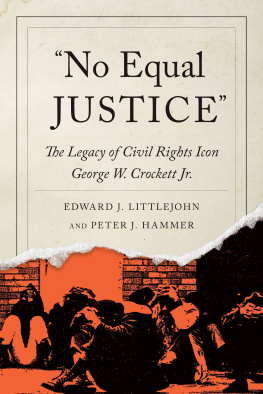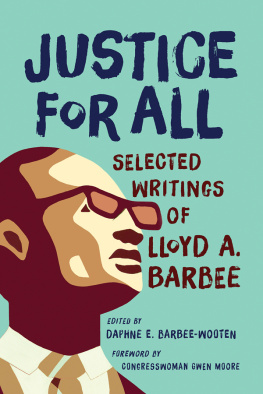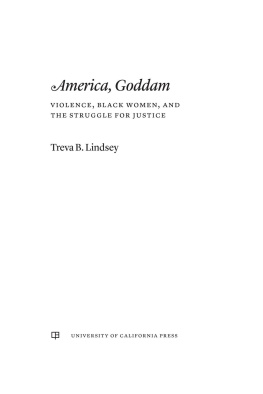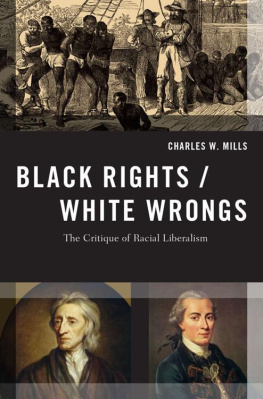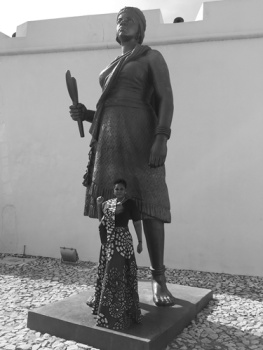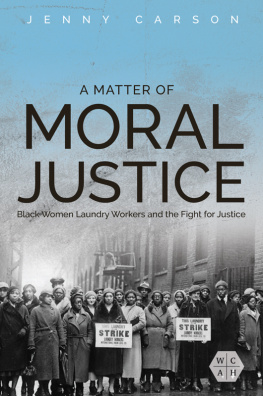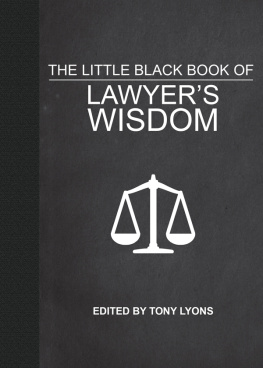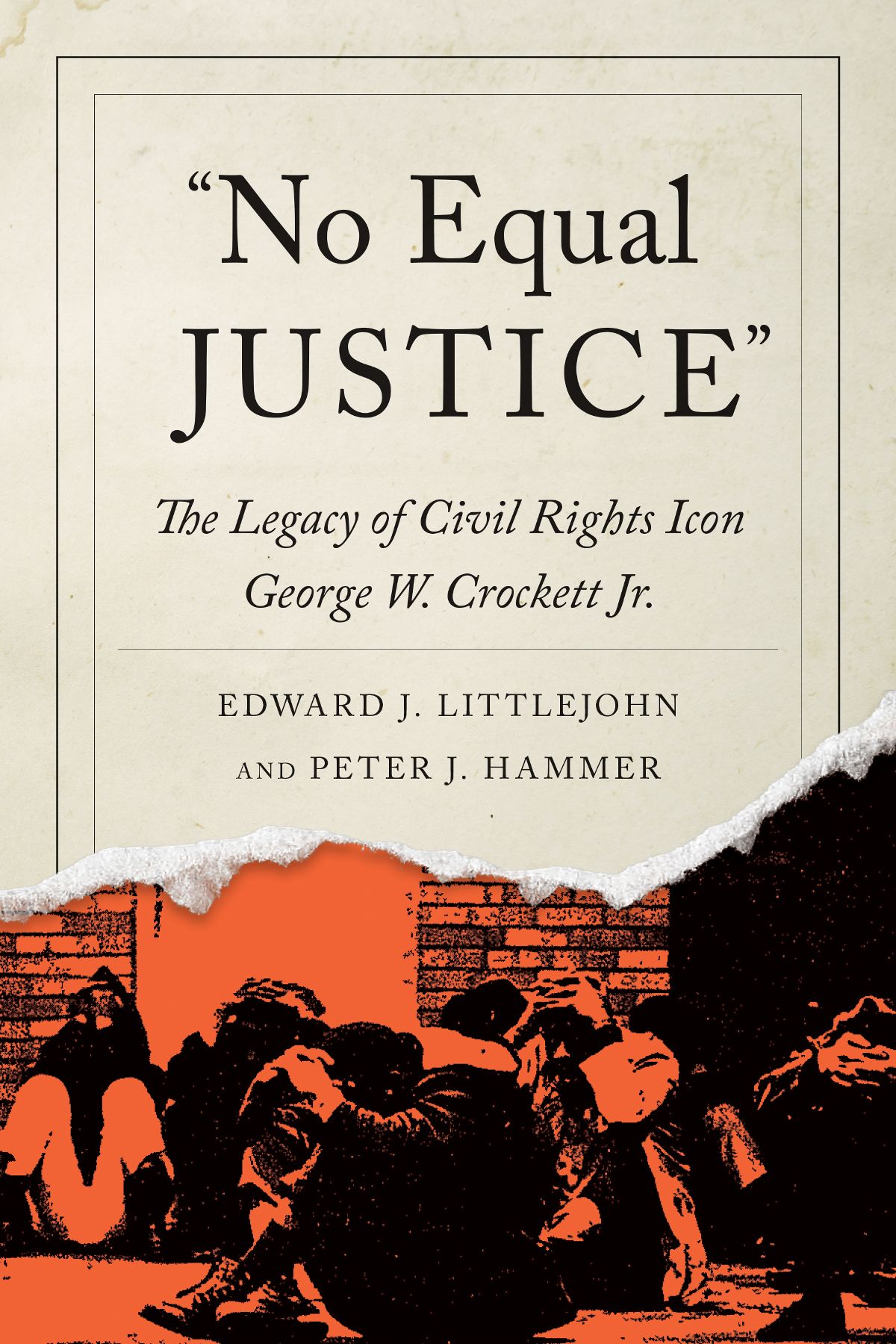
Praise for No Equal Justice: The Legacy of Civil Rights Icon George W. Crockett Jr.
George Crockett is an inspiration for freedom fighters everywhere, and its an honor to carry on his legacy of working for the people in Congress. A true peoples lawyer, his life serves as a model of courageous, unflinching advocacy, and its long past due that new generations learn about his pioneering civil rights and social justice work.
Congresswoman Rashida Tlaib
In 1949, George W. Crockett Jr., as a Black lawyer, was one of five who defended the constitutional rights of the leaders of the United States Communist Party. This criminal trial, then Americas longest and most important, ended with contempt citationsCrockett served four months in a segregated Kentucky prison. Later, in 1952, he and his partner, Ernie Goodman, represented most of those called before the House Un-American Activities Committee in Detroit, including future mayor Coleman A. Young. Early on a Saturday morning, in 1969, Crockett, while a Detroit Recorders Court judge, went to Detroit Police Headquarters with writs of habeas corpus and began arraignments freeing most of the 142 men, women, and children illegally arrested after a shoot-out at the New Bethel Baptist Church. After I became a lawyer in1970, I practiced law before this brilliant and ethical jurist. He respected the civil liberties of everyone regardless of race, religion, or political affiliations. He became my mentor and I managed his 1980 campaign for the U.S. Congress. This superb and long-overdue book is for young and older readers of law, history, and biography. It instructs on what was and how a determined person can make positive differences in the lives of others. It is a quintessential must-read.
Dennis Archer, Mayor of Detroit (19942001), Michigan Supreme Court Justice (198690), President National Bar Association (198384), and President American Bar Association (20034)
No Equal Justice: The Legacy of Civil Rights Icon George W. Crockett Jr. makes abundantly clear that this dedicated life led by George Crockett Jr. must not be forgotten lest we forget our own history and disregard the road map George Crocketts life is in this struggle for justice. While George Crocketts life could stand for how elusive justice can be and how history repeats itself, Professors Littlejohn and Hammer successfully make the case for how we must stay encouraged in the struggle, and how we can draw inspiration from the giant warrior that George Crockett was. These authors bring George Crockett Jr. back to lifeto educate and inspire a new generation of social activists, judges, and all who are invested in eradicating racism from our institutions, hearts, minds, streets, and courtrooms. I commend No Equal Justice to anyone who must be encouraged, strong, and courageous.
Judge Victoria A. Roberts, United States District Court, Eastern District of Michigan and 62nd President of the State Bar of Michigan (199697)
George Crockett was a man of extraordinary courage, character, and conscience. Unwavering and impactful in his efforts to create a more just Americaand to end apartheid in South Africahis life set a standard to which persons of conscience should aspire. This book shows what it means to be a person of principle and consequence, and should be read by all who wish to better understand the searing battles that led to the rights to which Blacks have access today.
Randall Robinson, lawyer, author, human rights activist, and founder of TransAfrica
George W. Crockett Jr., who represented my father and Coleman Young during the Red Scare hearings in Detroit, was a hero in my family, but more important was a vital and underappreciated figure in the fight for social and racial justice in America. I am thrilled that his courageous story is finally being told.
David Maraniss, Pulitzer Prizewinning author of A Good American Family: The Red Scare and My Father
No Equal Justice
Great Lakes Books Series

Editor
Thomas Klug
Sterling Heights, Michigan
African American Life Series
Editor
Melba Joyce Boyd
Department of Africana Studies, Wayne State University
A complete listing of the books in these series can be found online at wsupress.wayne.edu.
No Equal Justice
The Legacy of Civil Rights Icon George W. Crockett Jr.
Edward J. Littlejohn and Peter J. Hammer

Wayne State University Press
Detroit
2022 Edward J. Littlejohn and Peter J. Hammer. All rights reserved. No part of this book may be reproduced without formal permission. Manufactured in the United States of America.
ISBN 978-0-8143-4876-5 (hardback)
ISBN 978-0-8143-4877-2 (ebook)
Library of Congress Control Number: 2021943633
On cover: Republic of New Africa members detained at the New Bethel Baptist Church, March 2829, 1969. Courtesy of Valerie and Carolyn Baker and the General Baker Institute. Jacket design by Will Brown.
Wayne State University Press rests on Waawiyaataanong, also referred to as Detroit, the ancestral and contemporary homeland of the Three Fires Confederacy. These sovereign lands were granted by the Ojibwe, Odawa, Potawatomi, and Wyandot Nations, in 1807, through the Treaty of Detroit. Wayne State University Press affirms Indigenous sovereignty and honors all tribes with a connection to Detroit. With our Native neighbors, the press works to advance educational equity and promote a better future for the earth and all people.
Wayne State University Press
Leonard N. Simons Building
4809 Woodward Avenue
Detroit, Michigan 48201-1309
Visit us online at wsupress.wayne.edu
References to internet websites (URLs) were accurate at the time of writing. Neither the author nor Wayne State University Press is responsible for URLs that may have expired or changed since the manuscript was prepared.
Gerry M. Doot
November 1, 1956September 15, 1998
Lawyer, CPA, research assistant, friend, and ardent admirer of George W. Crockett Jr.
Contents
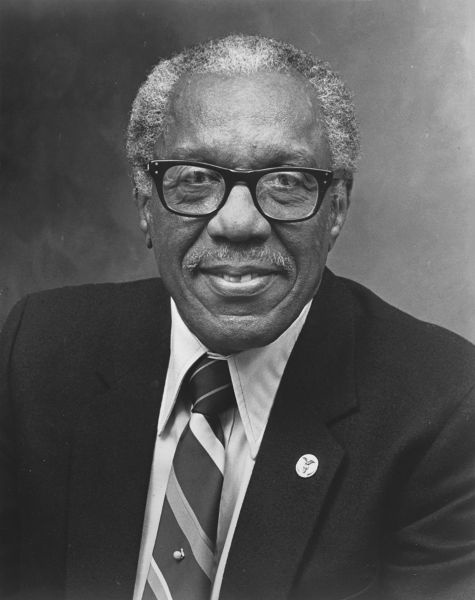
Congressman George W. Crockett Jr.
Three of the best lawyers ever to work in Detroit were Maurice Sugar, Ernest (Ernie) Goodman, and George W. Crockett Jr. It is impossible to tell the story of one without including important parts of the lives of the others. Fortunately, there are good biographies of Sugar and Goodman: Christopher H. Johnson, Maurice Sugar: Law, Labor, and the Left in Detroit, 19121950 (1988), and Steve Babson, Dave Riddle, and David Elsila, The Color of Law: Ernie Goodman, Detroit, and the Struggle for Labor and Civil Rights (2010). This book completes the trilogy.
Writing this biography has been a labor of love, but it has also been a labor spanning multiple decades. Edward Littlejohn conceived the project as early as 1990. Sadly, Maurice Sugar passed away in 1974, but both George Crockett and Ernie Goodman were available and willing participants for the work. Crockett and Goodman made their personal records, legal files, and photograph collections available to Littlejohn. They also spent many hours in interviews and conversations, discussing their cases and personal histories, making invaluable contributions to this book.
Next page
